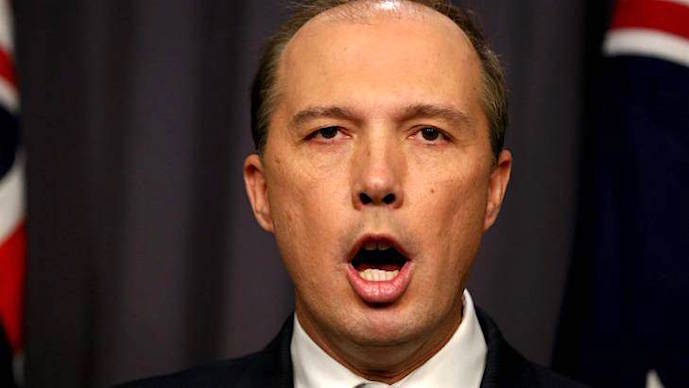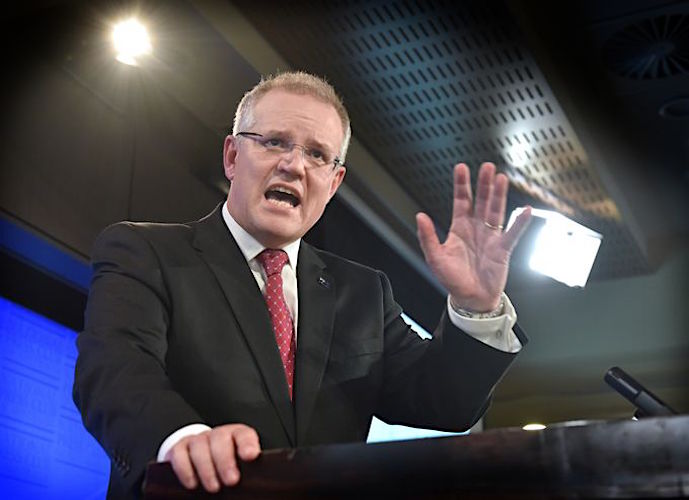-
4/09/2016
-
Ad astra
-
conservative mind

Are you as offended, as disgusted as I am with the language used by our politicians day after day? Have you noted how mean-spirited, antagonistic and adversarial their words so often are?
They use words like poison arrows aimed at the heart of their political opponents and those in our society whom they despise.
They have no concern for the damage their arrows might inflict, or how injured or offended their targets might feel. Wounding, disabling, hurting, demeaning is their purpose. The more damage they can inflict, the more satisfied they are.
It’s akin to schoolyard bullying, but much worse. Can you recall language as ranting, as poisonous, as hurtful, as damaging, during your school days? I can’t.
Listen to them – try to pick their targets, and watch their reaction.
There is a group that conservatives loathe passionately – those at the bottom of the social scale who rely on welfare support: the unemployed, the job seekers, the homeless, the disabled, and the mentally ill. They are Joe Hockey’s ‘leaners’.
This derogatory language goes back a long while. Do you remember when Tony Abbott, as a minister in the Howard government coined the tag ‘job snobs’ to denote those who were too lazy to look for a job, or too fussy about what work they would do and where, or too demanding about terms and conditions? Those who eventually did get a job might then oversleep, or not turn up because the travel was too arduous or inconvenient or they had no transport, or they would leave work early or slack on the job – thus the tag ‘job snobs’. When job seekers moved onto Newstart, the term morphed into a peculiarly Aussie term: ‘dole bludgers’.
Joe Hockey upped the ante when he pushed his ‘end of entitlement’ message, first at a conference in Britain. Far from trying to conceal his theme, he proudly shouted it from an international pulpit. His point was that there were some, indeed too many, who felt entitled to welfare, entitled to support from the government, and of course the taxpayer, if they had no job. Not long after we heard his now-infamous descriptor – ‘leaners’ – to designate this despicable mob, who depended on Hockey’s ‘lifters’, the good guys who had a job or a business, who pay their taxes and support the idle leaners.
Hockey’s message did not go down well, especially when those castigatory tags were given effect in his punitive 2014 budget, in which he punished the leaners and the less well off. Even his own supporters recognized that his budget was unfair. Rudiments of it still languish in the Senate wistfully awaiting endorsement.
Then along came Scott Morrison, keen to transmit the same message but unwilling to use Hockey’s tags. So he coined some of his own, not as elegant as Joe’s, but replete with the same pejorative meaning. So now we have the
‘taxed’ and the ‘taxed-nots’. As keen as Hockey, and Abbott before him, to divide our nation into ‘them and us’, into ‘the deserving and the undeserving’, Morrison launched his unique tags at the Bloomberg Summit on the economy last week.

Here’s what he said:
“A generation has grown up not ever having known a recession, of seeing unemployment rates at more than 10% … On current settings, more Australians today are likely to go through their entire lives without ever paying tax than for generations. More Australians are also likely today to be net beneficiaries of the government than contributors – never paying more tax than they receive in government payments. There is a new divide – the taxed and the taxed-nots.”
Remember though that in his mind the ‘taxed-not’ cohort are the dole bludgers, the leaners, those who suck the welfare system dry because they don’t, won’t, or can’t work and therefore pay no taxes. Somehow, the almost 600 companies, major ones such as Qantas, Virgin Australia, General Motors, Vodafone, ExxonMobil, Warner Bros Entertainment, Lend Lease and Ten Network Holdings, who paid no tax last financial year, were not mentioned. Nor were international giants Apple, Microsoft and Google, who paid very little tax here on the large profits they earned in this country. Presumably Morrison does not categorize them as ‘taxed-not’. Why?
The reason behind Morrison’s apparent inconsistency is ingrained
conservative ideology. Conservatives believe that we get what we deserve. Those who work hard, or are entrepreneurial enough to own a business, deserve the monetary reward they get, and what’s more deserve to keep that reward and not have governments take it away as taxes and give it to others, to those who do not work and earn. Thus we hear endlessly that Liberals want to reduce tax, and have seen them propose to do that, even for the wealthiest. The promised $48 billion tax cut to businesses awaits the verdict of the Senate.
Moreover, conservatives believe that those who have little deserve their impecunious state. They have not worked, or have not worked hard enough, or have not saved enough, and therefore deserve to be poor. These people ought not expect to get handouts from others, or from their government. They deserve their poverty-stricken situation, and should not expect the milk of human kindness to be offered to them. This view is consistent with George Lakoff’s model of politics. Using the metaphor of nation as family and government as parent, he argues that conservative politics corresponds to the
strict father model that posits that people should not look to the government for assistance lest they become dependent. Conservatives regard the inequality that is a sequel to such an ideology as part of the natural order. There have always been lords and ladies, and serfs to bow to them and serve them. They see no need for egalitarianism in what they see as an inherently unequal world.
We ought therefore to not be surprised when we hear Scott Morrison or Mathias Cormann or Kelly O’Dwyer perpetuate ’the workers versus the bludgers’ way of thinking. Remember the fury Eric Abetz generated while he was Minister for Employment when he sought to introduce a rule that the unemployed must complete forty job applications a month. As far as he was concerned, they had nothing better to do. The impracticability of this soon mugged him, particularly when it became apparent that it was unlikely that forty jobs would be available in Tasmania close to where the job seeker lived. His object was not really to find a job for these people; it was to punish them with ‘homework’ for being unemployed.
Abetz reasoned:
"We undertook what we believed would be a fair consideration of an application of a job every morning and every afternoon should not be too onerous."
"There doesn't seem to be a community complaint with the cut-off of 20 job applications per month, so one assumes one might be able to increase that without too much extra community concern.”
Eventually, the idea was scrapped out of concern that employers would be ‘swamped with fake job applications’, rather than the imposition on job seekers of forty applications a month was unreasonable and stupid.
So long as conservatives are in power, we can expect this toxic talk to continue, directed as it is at what they see as a lesser grade of citizens, a poorer class of people. It is a reflection of their entrenched ideology, which they will not, indeed cannot change. It is in their DNA.
There is another variety of toxic talk, one that we witness, in fact suffer every day, many times a day. We see it whenever politicians are confronted with uncomfortable facts. Rarely prepared to say: ‘We messed up’, ‘We made a mistake’, or more benignly ‘We could have tried a different approach’, they barrage us with a deluge of disingenuous words to justify their actions, and just as deceitfully, to blame others for the situation.
All politicians are adept at this stratagem. Blame shifting, and aiming their poison arrows at their opponents, comes easy. But few do it as spitefully as our odious Minister for Immigration, the Honourable Peter Dutton.
Confronted recently with the shocking report by Save the Children about the impact prolonged detention was having on children held on Nauru, he quickly dismissed reports of sexual assault and abuse as ‘hype’ and ‘false allegations’. He went on to roundly condemn
The Guardian and the
ABC for promulgating the report and the ugly accusations it contained.
He accused those seeking to expose the awful occurrences on Nauru as maliciously denigrating the government’s effort. Never was there a concession that things were bad on Nauru, and needed urgent attention. To Dutton, this report was a storm in a teacup, exaggerated out of proportion. He maintained that protective systems were in place and operating effectively. He accused asylum seekers of setting themselves on fire, deliberately self-harming, or making false allegations of sexual assault in order to come to Australia. He airily dismissed the reports of sexual assault, child abuse and self-harm written by detention centre staff, insisting: “Most of that’s been reported on before.”
To Dutton, whistleblowers are simply troublemakers hell bent on embarrassing him and the government.
He was quick to add that the genesis of this situation was Labor’s relaxation of ‘border control’, and the resultant arrival of thousands of boat people, with hundreds drowning on the way (he has always got his figures off pat). His argument is that if only Labor had continued the Howard border protection policies, this situation would not have arisen. Now poor Peter has to cope with Labor’s legacy of neglect and incompetence!
So he delivered the double whammy: nothing much was wrong on Nauru, and what was wrong was Labor’s fault anyway.
Perhaps more than most, it is those ministers who are tasked with managing the nation’s finances who most regularly engage in toxic talk. Never prepared to concede that they haven’t got all the answers, or that they might have achieved a better result with another approach, they continue to blame the previous Labor government for their fiscal woes. We are regularly reminded about Labor’s legacy of profligate spending, ‘debt and deficit’, and Labor’s determination always to raise taxes, and never to cut spending. It matters not that under the Coalition spending has increased, taxes have risen, and the deficit has ballooned; it is still all Labor’s fault. Labor continues to be condemned with this toxic talk, this disingenuous language, extravagantly embellished with straight-out lies.
I could go on for pages recounting this type of toxic talk that so infuriates us all day, every day. I wrote about it extensively on
The Political Sword almost eight years ago in
The curse of adversarial politics. It is still worth reading. The penultimate paragraph reads:
“Those who despise adversarial politics find it to be contemptible, a damaging affliction on our political system. They resent the stifling impediments it places on governing, on governments carrying out what they promised the electorate they would do. They see it as focused on ‘winning’, on gaining a political advantage, rather than telling or establishing the truth, or contributing usefully to the discourse.
“It sets the teeth of the electorate on edge, which ‘turns off’ in despair. Voters would prefer politicians to be open and upfront, more focussed on the good of the nation, less willing to corrupt the usually-worthy principles that brought them into politics in the first place. Adversarial politics may be an important reason the public has turned away from politics and has become cynical about the motivation and behaviour of politicians. The more adversarial politics becomes, the greater the erosion of voter engagement and threat to the democratic process.”
That was written eight years ago. What’s changed? Nothing!
The public loathes toxic talk as much as ever. Will politicians ever learn?

Current rating: 0.4 / 5 | Rated 14 times